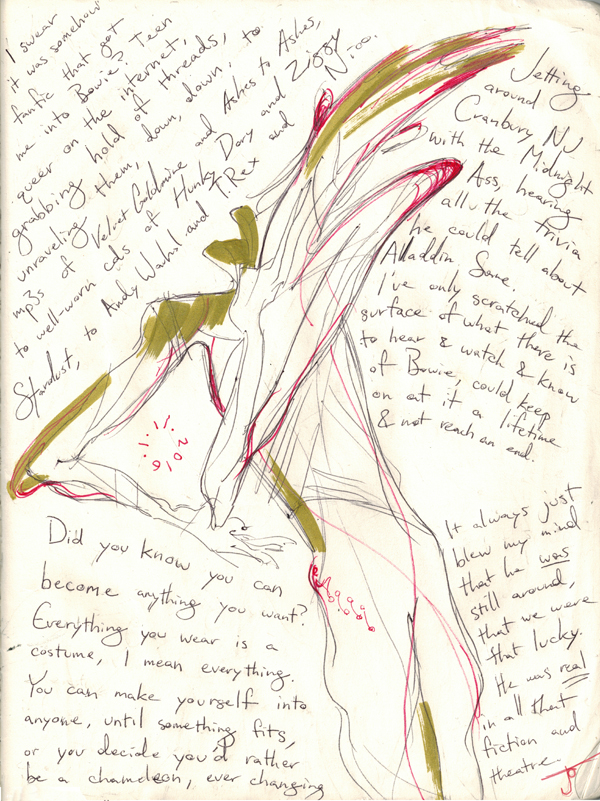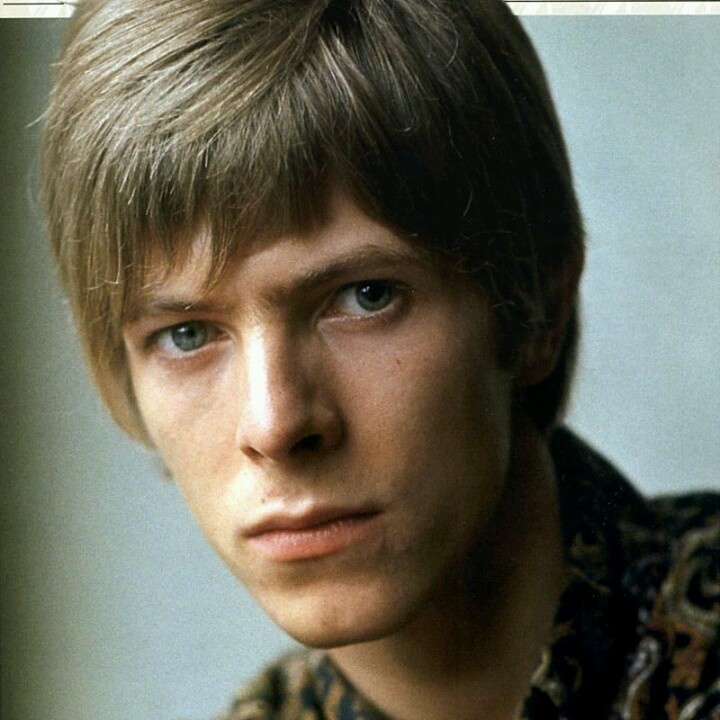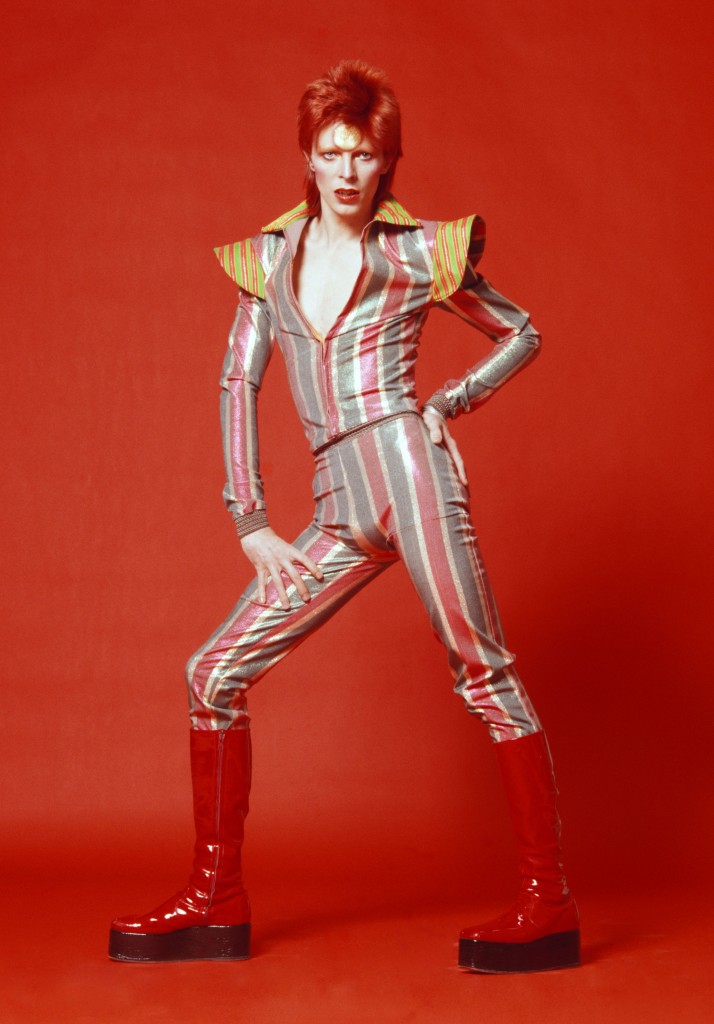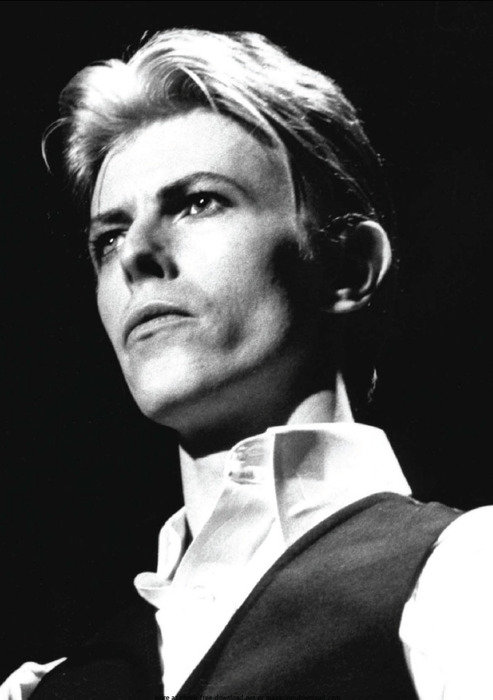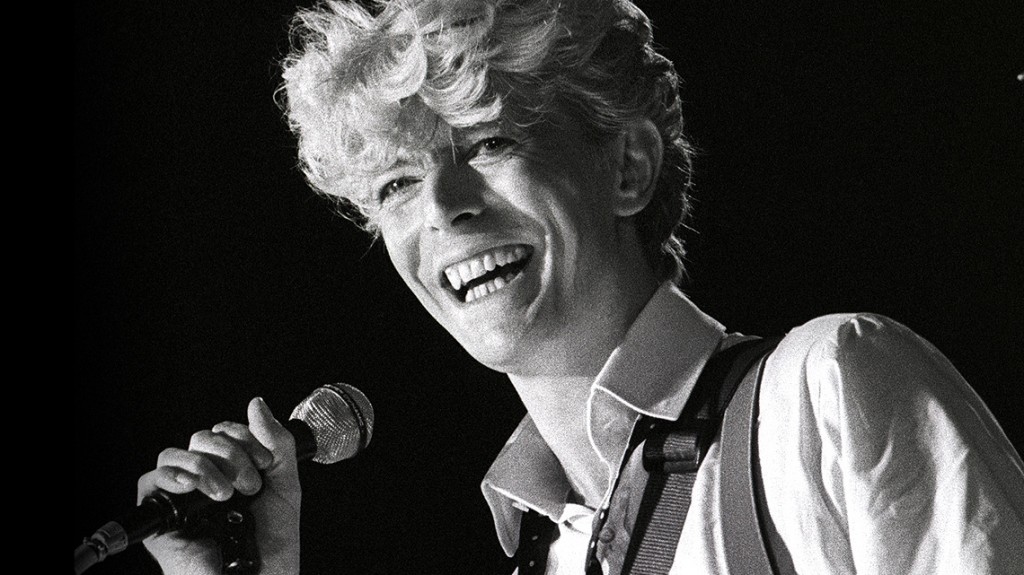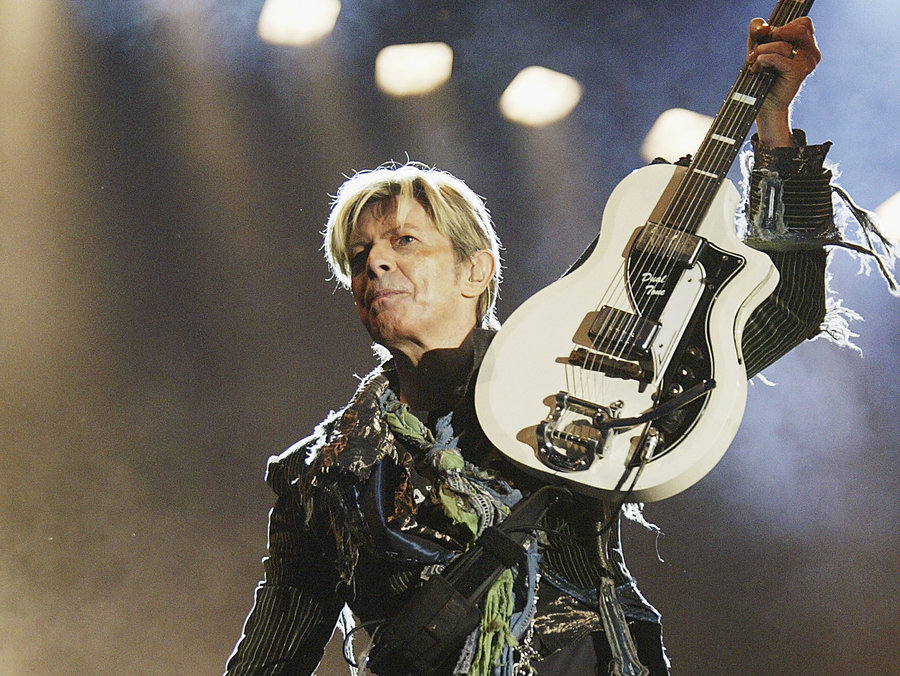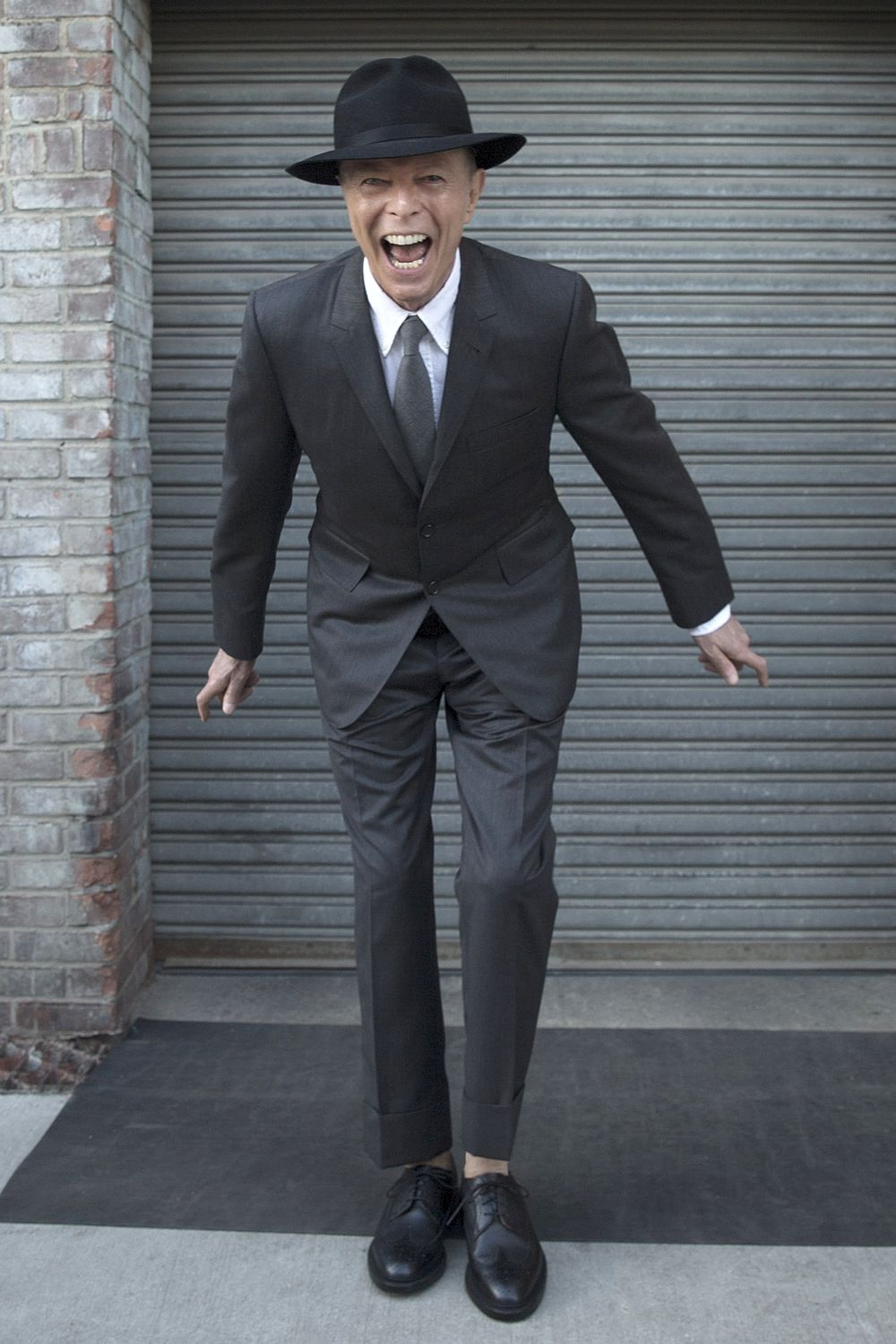Yesterday we got the the news that music and fashion icon David Bowie passed away. His body of work stretched over 40 years and several times changed the landscape of popular music. Always reinventing himself, he lived his life with a sense of freedom and acceptance that inspired millions of people to embrace what made themselves different. Some of the Deadshirt staff decided to write about how David Bowie touched their lives.
94. 94 out of 96. That’s how many Facebook posts I scrolled through Monday morning that reported, reacted to or mourned the passing of David Bowie, 18 months after a very secret battle with cancer, and just three days after the release of his final album, Blackstar. I’m never going to remember what the other two are about.
Such an outpouring is rare. I was in a suburban Johnny Rockets with no smartphone when Michael Jackson passed away. I got an insane series of texts from a friend, then the radio confirmed the terrible news. I don’t remember what my descent into Facebook or Twitter was like that night. This was different. If there’s still any question what kind of an age we’re living in, those 94 cascading posts answer the question.
I don’t own many David Bowie albums. I got a good deal on the Best of Bowie compilation at the Virgin Megastore in Times Square around 2007 (there was a sale on the single-disc version that somehow applied to the double-disc version, too—jackpot), and I recently purchased the Sound + Vision box a few days after Christmas with a gift card I’d gotten. Blackstar was on the agenda; so, too, was the Five Years box, a 12-CD set that collected all of Bowie’s records from 1969 to 1973.
But the songs. I can’t forget the songs. Nobody can. Everyone has a favorite. “Space Oddity,” “Changes,” “Life on Mars?,” “Rebel Rebel,” “Young Americans,” “‘Heroes’,” “Ashes to Ashes,” “Under Pressure,” “Let’s Dance,” “I’m Afraid of Americans”—there’s a Bowie song (and hell, a Bowie persona) for every man, woman and child on earth.
Bowie didn’t say it overtly (would you expect him to?), but my theory is he wanted his songs to bring people together, to make them okay with themselves. Less a statement on how the world was, and more about how “we” were. My proof is in my friends, who’ve all rallied around Bowie tunes at one time or another. Deadshirt’s music editor, Julian Ames, performed a cathartic version of “Young Americans” at karaoke once, which remained a triumphant, determined moment on the fake stage of the karaoke bar. A bunch of us went to an Astoria club a few months ago to (mostly) fail miserably at a difficult Bowie trivia night curated by Chris O’Leary, the extraordinary and kind author of the Pushing Ahead of the Dame blog (which is being published as a book; the first volume, Rebel Rebel, shot to the top of my to-read pile today). And just last month, at a Deadshirt-sponsored holiday party in Brooklyn, my good friend and major Bowiephile Leigh Walton and I wowed an audience with a sincere rendition of Bowie and Bing Crosby’s “Little Drummer Boy/Peace on Earth.”
If the 94 posts and the songs don’t tell you something about what David Bowie meant to people, those stolen moments, at the very least, should.
– Mike Duquette
When Blackstar dropped the other day to near universal acclaim, I made myself a mental promise that soon, very soon, I would finally get around to exploring David Bowie’s catalogue in its intimidating, complex entirety. Growing up, I was only a casual Bowie fan—mine was a Beatles household, first and foremost—but even as a budding music enthusiast, there was no denying the man could write a hit. Outside of best-of compilations, my Bowie knowledge is pretty limited, but I’ve always been fascinated by his endless imagination and chameleonic ability to disappear into any role he desired. Most of my emotional attachment to David Bowie comes from the profound impact he’s had on many people I hold dear in my life, coupled with his status as a genuinely kind, wonderful person.
Then of course, the news came early Monday, in the form of a devastatingly blunt middle-of-the-night Facebook message from my bandmate: “David Bowie has died.” With the sadness and shock came a surprising feeling of regret that I hadn’t appreciated his work more while he was still around. As I write this, I’ve been non-stop listening to Bowie records in chronological order for about eight hours straight, and I’m barely a third of the way through his discography. Unsurprisingly, it’s fucking good stuff.
The true magic of David Bowie was how many different things he was to so many people—a rock god, a master of reinvention, a survivor of addiction, a queer icon, a Goblin King. To me, he was both an inscrutable monolith and somehow comfortably familiar. The outpouring of love and sadness across social media, from people who knew him and people who didn’t, confirms this much: David Bowie was truly one in a million. Right up to the very end, he was full of life and spirit; one only needs to look at the heartbreaking final photo taken of him, on his 69th birthday, eighteen months into a secret battle with liver cancer and only two days prior to his death. His kindness, bravery, and creativity will be his legacy, and that’s not a bad reputation to go out on. If only we could all be so lucky.
– Sam Paxton
David Bowie was someone I had to discover on my own. Almost all of my taste in music can be traced back to me rifling through my parents’ record collection, hence my well-known affinity for classic rock, but I think Bowie was just a touch too Out There for them. To this day, on some level, I think Bowie’s still a bit too Out There for me. It’s a level of cool I don’t know if I’ll ever reach, but I’ll be damned if I won’t keep trying. I think it’s what he’d want.
One of the many, many, many things that fascinated me about Bowie is how much we simply know of him through cultural osmosis. He’s been covered, parodied, homaged, honored, mocked, and mimicked so often that it’s nearly impossible not to be familiar with him. You like Nirvana? You’ve heard a Bowie song. You watch Jimmy Fallon? You’ve seen Tebowie. Fan of Flight of the Conchords? INCOMING MESSAGE FROM DAVID BOWIE’S NIPPLE ANTENNAE! I could spend all day hunting down parodies and/or covers of his famous duet with Bing Crosby. Even if you’ve never purchased a Bowie album or don’t have a single Bowie track in your music library, you know his sound, his many looks, you know him. Only a handful of people who have ever existed reached this cultural touchstone level.
On a more personal level, as you’ve been reading here, Bowie connected me to others. Everyone has thoughts on Bowie, whether his music, his acting, or the exact meeting of that Venn diagram that is The Goblin King. If you can walk into a room and state “YOU REMIND ME OF THE BABE” without hearing “WHAT BABE?” in response, never talk to those people again. You don’t need that negativity in your life. Our Labyrinth Deadshirt Date Night is one of the few where we all had a good time watching the movie itself. Hell, some of my earliest memories of music played by some of the people on this very site was Bowie—in a proverbial and/or literal vault somewhere, there’s a fantastic cover of “Five Years” featuring our Editor In Chief on keys and Mike Pfeiffer on vocals.
I know it sounds corny, but the phrase “there’s a star man waiting in the sky” feels a lot heavier now.
Bowie recorded his last album knowing that he was dying—a secret he somehow kept for over a year—and released it with impeccable timing. I couldn’t imagine a more Bowie way to shuffle off one’s mortal coil if I tried. It can’t be duplicated.
– David Lebovitz
I started listening to David Bowie during my awkward baby deer stumble high school years. In particular, I was very big on “Space Oddity,” which was mislabeled on my third-party MP3 player as “Major Tom.” I don’t know what to say about David Bowie that hasn’t been said already by better, more musically inclined minds than mine. Instead of grasping at some kind of profound summary statement on a man whose body of work informed the background radiation of my life, I’m just going to throw out some times that David Bowie songs have appeared in movies I love:
- The appearance of Bowie and Moroder’s “Cat People” is the centerpiece of Inglourious Basterds. Tarantino opts for the slower, more deliberate version of the track during the film’s climactic “Nazi movie night” sequence, and it’s magnificent.
- “Kooks” appears, to great effect, in Joe Wright’s Chemical Brothers-scored Hanna during one of the few genuinely joyful scenes of the film.
- Ridley Scott’s The Martian, after using our hero’s hatred of disco songs as a reliable running gag for most of the film, gives us a poignant montage of human cooperation set to “Starman.”
- Washed up ’70s-era Dewey Cox also sings “Starman” in Walk Hard, also a solid joke and even more importantly a great signifier of how far our hero has fallen from grace.
- Peter Quill and company arriving to the severed head of a dead Celestial in Guardians of the Galaxy is underscored by Bowie’s “Moonage Daydream.” The brief moment perfectly captures the impossible awe and beauty of Kirby’s cosmic Marvel Universe.
- Seu Jorje’s fantastic covers of Bowie standards litter The Life Aquatic with Steve Zissou, but I’ve always been the most partial to Anderson’s use of “Queen Bitch” in the film’s Buckaroo Banzai-inspired final scene.
All of this, of course, ignores Bowie’s notable contributions to film as an actor with performances in movies like The Man Who Fell To Earth, Twin Peaks: Fire Walk With Me, The Prestige and The Hunger. That’s indicative of the massive hole David Bowie’s passing has left in popular culture; we’ll be eulogizing him for a long time to come and rightfully so.
– Max Robinson
I’ve been playing the drums in bands for a good six or seven years now; the first song I ever played with other people was a sloppy version of David Bowie’s “Rebel Rebel.” Ever since then, I’ve been making and playing music that is, in some way, inspired by Bowie. I don’t know if I’d love music the way I do, willing to dedicate my life to bring music to people’s ears in some way or another, without him.
I first heard of David Bowie in high school. I believe it was from a young Mike Pfeiffer who wouldn’t shut the fuck up about him. Late in high school I made a serious decision to get into rock music; being a black kid from the suburbs, I was into to hip-hop, but I became disillusioned by the message of most pop rap of the time, so I decided to take a break and see what else was out there. The seed for my Bowie fascination was planted, but it took a couple years of listening to whatever crap was on classic rock radio stations before it started to blossom.
I eventually made a commitment to stay up to date and learn everything I possibly could about contemporary music, but to do that I would need to discover its roots. I looked at all my favorite genres, within and outside of rock, and traced them back in time, and almost every vein found its way back to David Bowie. The man is a pillar of all pop music. Without him, people would’ve forgotten who Iggy Pop was by 1975, Lou Reed by 1971. There would be no punk or new wave, nobody outside of Europe would give a shit about krautrock, no Madonna, no Guns N’ Roses, no Rihanna or Lady Gaga. In fact, if you’re even casually connected to music (or fashion, honestly) chances are you’ve reaped benefits from David Bowie’s work.
And that’s what I admired most about him, his longevity. I’m not only talking about him living to the nice age of 69 — The Rolling Stones are all still kicking around — but they aren’t at the vanguard of musical taste. While Bowie may have lost his fastball along the way, he never lost his curve; he continued to experiment and reinvent himself into the new millennium, discovering, or at least bringing to the masses, new sounds and styles of music. I made my commitment to always stay on top of music and keep an open mind; unbeknownst to me at the time, I was just following in David Bowie’s often-platformed footsteps.
– Julian Ames
I’ve studied photos of David Bowie to make sure that my hands move like his. I’ve paused and re-wound his interviews, watching his lips move in the tiniest wingbeats and spent hours in front of my mirror twitching my own mouth trying to replicate the force that his merest gesture imposed onto the people around him. He moved through the world with untouchable grace, eternally seeming like the moment before you wake up. He is such a singular and strange fascination, sitting at the nexus of culture like a point in the kabbalistic tree of life that he obsessed over. It’s two steps from David Bowie to anywhere. Trace the lines back to find classic soul music, Japanese Kabuki, silent films, and Nietzsche. Trace the lines forward and find three decades of pop music and fashion just trying to catch up with him. But you never can.
David Bowie could be everything to anyone. Charming, deadpan, sexy, sexless, brilliant and trashy depending on what angle you saw him. He was, and is, everything to me. A perfect and unsolvable mystery that reconfigures itself as you attempt to work it into a recognizable solution. He was human and alien, a legendary outsider who also embodied some the most mortal traits. David Bowie would write the most beautiful song of all time and sing it with one of the greatest rock guitarists and then forget the words to a verse and laugh it off.
He was terrified of death for so long. His paranoia drones and hums behind his early work, maturing from the messianic fear of Ziggy Stardust into the percussive beating heart of Heathen and The Next Day. It makes so much of his work oddly prophetic, although “I will die someday” is a fairly safe bet to make when it comes to actuarial gambling. I didn’t like his swan song Blackstar when I first listened, truth be told. “More old man moaning,” I dismissively tweeted without realizing that I had been led into a trap. This was our last dance.
“Something happened on the day he died
Spirit rose a metre and stepped aside
Somebody else took his place, and bravely cried
I’m a blackstar, I’m a blackstar”
Living long enough to release the perfect farewell that passed on the power of his legacy to those who loved him, David Bowie played chess with death and he won. Good luck catching up.
– Mike Pfeiffer

